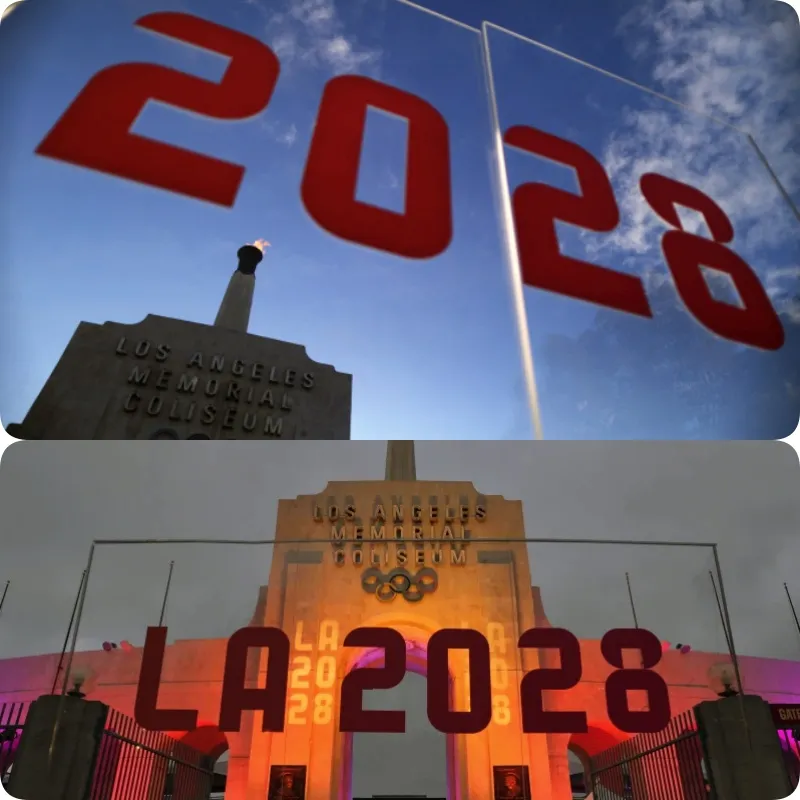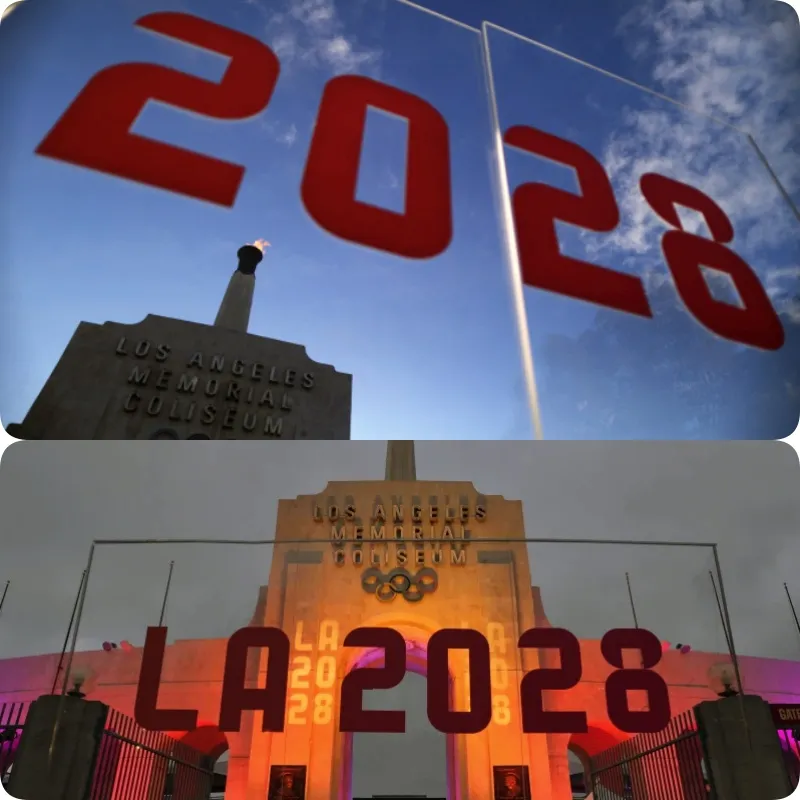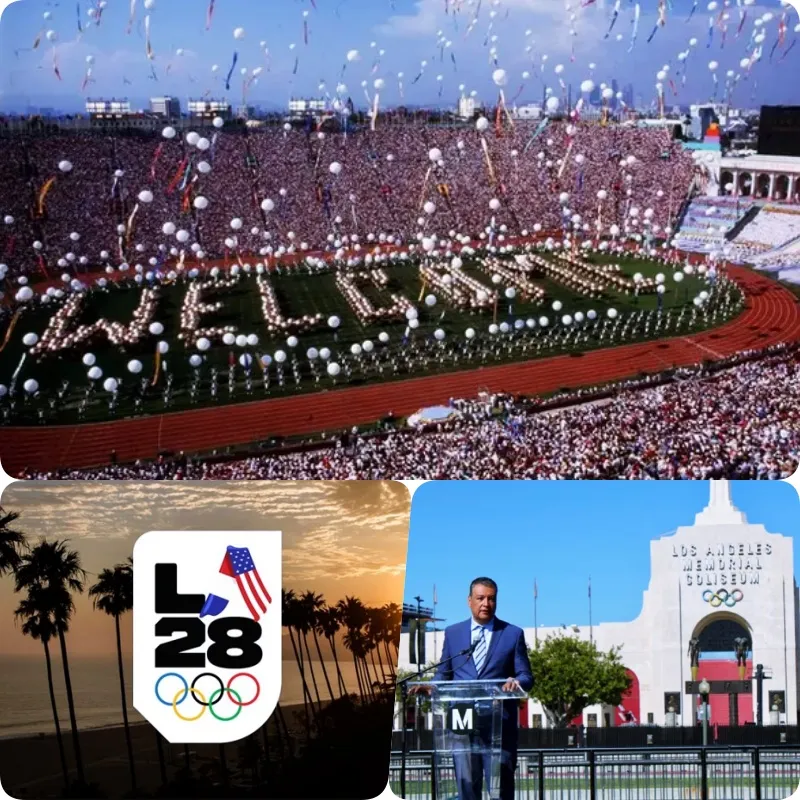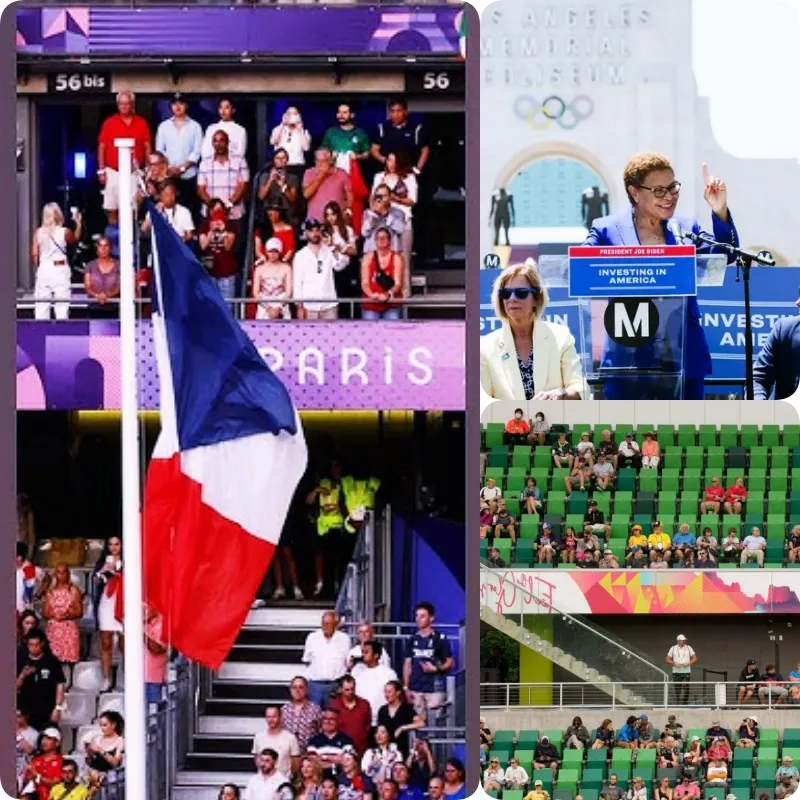
U.S. Plans to Spend Nearly $7 Billion on the 2028 Olympics
The U.S. plans to allocate $6.9 billion for hosting the 2028 Olympics in Los Angeles, primarily by utilizing existing infrastructure rather than constructing new facilities. This cost-effective approach comes after Paris hosted the 2024 Olympics with a relatively modest budget of around $10 billion.

Los Angeles is a city with extensive experience in hosting the Olympics, being the third city in the world to host the Games three times. In 1932, Los Angeles was the only city bidding to host the Olympics during the Great Depression, a period marked by the absence of several nations. In 1984, the city not only succeeded financially but also made a significant cultural impact, sparking a trend among major cities to compete for hosting the Games.
For the 2028 Olympics, the U.S. has declared that this will be a “no-build” Games, meaning that the country will not spend hundreds of millions or even billions of dollars on new infrastructure. Janet Evans, a four-time Olympic gold medalist in swimming and the Chief Athlete Officer of the Los Angeles Organizing Committee, reiterated this point in a recent press conference in Paris. According to the plan, the 2028 Olympic opening ceremony will take place traditionally at SoFi Stadium, which has already hosted major events such as the Super Bowl and concerts by Taylor Swift since its opening in 2020.
Other venues set to be used in the 2028 Olympics include Intuit Dome, the soon-to-be-opened home of the Los Angeles Clippers, where basketball and several other sports will be held. Crypto Arena, located in downtown Los Angeles and home to the Lakers, will host gymnastics events.

Water pollution concerns are also being highlighted, particularly regarding the water quality at Long Beach, where marathon swimming and triathlon events will take place. While the area’s sanitation history has been inconsistent, continuous seawater pumping has significantly improved the water quality. A 2023 analysis by the nonprofit organization Heal the Bay gave the water quality high marks.
Los Angeles will not invest in any specific transportation infrastructure projects solely for the 2028 Olympics. Instead, the city plans to upgrade existing infrastructure to serve multiple purposes. Since the 1984 Olympics, Los Angeles has had a subway line running through key event venues. Winning the bid to host the 2028 Olympics under Mayor Eric Garcetti in 2017 gave the city more time than usual to prepare. In 2018, the city outlined an ambitious plan to undertake 28 bus and rail projects to enhance public transportation. Some projects have been canceled, but others are still underway, including the expansion of the subway line to connect downtown Los Angeles with UCLA, which is planned to serve as the Olympic Village.
Recently, Los Angeles received $900 million in funding through the Biden administration’s infrastructure spending package. Of this, $139 million will be directly used to upgrade public transportation by 2028, with the goal of achieving a “car-free Olympics.”
Another prominent infrastructure project is the Inglewood People Mover, an automated rail line with three stops at major event venues. Initially, this project received a federal funding commitment of $1 billion, but opposition led to a $200 million cut. It remains unclear whether the project will be completed by 2028.

While Los Angeles’ terrain is often considered difficult for transportation, particularly for the Olympics, the city has proven capable of handling large-scale events in the past. Mayor Karen Bass plans to follow the strategy employed by Mayor Tom Bradley in 1984, asking local businesses to adjust work hours to reduce traffic and encouraging residents to work from home during the 17 days of the Olympics.
However, the city’s crime rate is significantly higher than it was in 1984. The 2028 Olympics have been designated as a National Special Security Event, with the U.S. Secret Service taking the lead in developing security plans, which will require substantial federal funding.
Additionally, the number of homeless encampments in Los Angeles has increased considerably since 1984. Despite California Governor Gavin Newsom’s threat to cut funding for cities that fail to address the homeless crisis, it’s uncertain whether Los Angeles will be able to resolve this issue in the next four years.
Regarding revenue, the Los Angeles Olympic Organizing Committee is relying heavily on ticket sales, sponsorships, payments from the International Olympic Committee (IOC), and other sources. So far, the committee has secured over $1 billion in corporate sponsorships from U.S. companies, out of a total goal of $2.5 billion.

Despite the challenges, the 2028 Olympics are still expected to provide a significant opportunity for Los Angeles to invest and grow economically. The city’s hospitality industry has continued to expand, adding 9,000 new hotel rooms in the past four years, with more expected in the coming years.
Adam Burke, President and CEO of the Los Angeles Tourism and Convention Board, has declared that the city is the “logical next destination” for the Olympics. He emphasized that Los Angeles has truly emerged as one of the world’s sports capitals. Before the 2028 Olympics, Los Angeles will host the FIFA World Cup and the U.S. Open Women’s Tennis Championship in 2026, as well as the Super Bowl in 2027.






